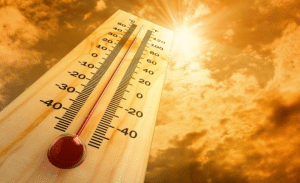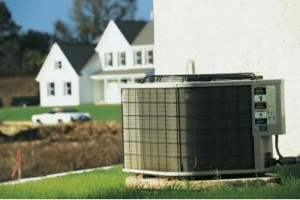When living in Florida, having an efficient home cooling system like an air conditioner or heat pump is not just a desire, it’s a necessity! Because of the heat and humidity, most Florida residents today rely on one of these systems to maintain not only reasonable comfort levels but to lower humidity levels as well.
But which HVAC system is better for beating the Florida heat? A heat pump or air conditioner?
To answer that question, we first need to explain how the two systems operate. Then we’ll look at 2 factors important to homeowners who might be considering the purchase of a new HVAC system: Cost and Efficiency.
What is a Heat Pump and How is it Different Than an Air Conditioner?
Many homeowners believe that air conditioners work by introducing cold air into the home. But in fact, air conditioners make your home cooler by using a compressed refrigerant to collect heat from inside your home as air passes over the coil in the air handler and pumping it outside. A heat pump, in cooling mode, does the same job. It is a mechanical-compression cycle refrigeration system that can be reversed to either heat or cool a controlled space.Â
A heat pump is always working, in summer and in winter, transporting warm air from one place to another, to heat or cool, according to the season. In cold weather, a heat pump will extract the heat outside and move it indoors. When it’s warm outside, the heat pump will reverse direction and operate in the same fashion as an air conditioner to cool the home.Â
Cost Considerations: Heat Pump Vs Air Conditioner
The largest consumer of energy in a typical Florida home is the heating, ventilation and air conditioning (HVAC) system, which can account for more than 40% of home energy use and, therefore, for more than 40% of your utility bill. Energy use by your HVAC system is affected by many factors such as insulation levels, system efficiency, shading on the home, quality and sealing of the windows and doors, design and integrity of the duct system, and, of course, how the system is used. (1)
In cooling mode, there really isn’t much difference in cost or efficiency whether you use a heat pump or an air conditioner. But remember, while a heat pump can both cool and heat your home, an air conditioner cannot. It can only provide cooling. This means that you’ll have to pair your air conditioner with a furnace or natural gas unit to provide heat in the colder months.
Another consideration in terms of cost is longevity and unit replacement cost. Since a heat pump both cools and heats a home, it works year-round. For this reason, AC units, which don’t need to run continuously in the winter months, experience less wear and tear and may not need to be replaced as often.Â
This expense could be offset, however, by the yearly cost-savings of owning a heat pump, which is more energy-efficient than a furnace in the cooler months.Â
Let’s explore heat pump energy efficiency a little more.
Which is More Efficient: Heat Pump or Air Conditioner?Â
At Gator Air and Energy, we want our customers to get the best, most energy-efficient products. That’s why we install Trane® cooling units. Trane® offers a variety of air conditioners, heat pumps, and more that range in efficiency (SEER), sound levels, price, and more.Â
What is SEER?
SEER measures air conditioning and heat pump cooling efficiency, which is calculated by the cooling output for a typical cooling season divided by the total electric energy input during the same time frame. A SEER rating is a maximum efficiency rating, similar to the miles per gallon for your car. Your car might get 28 miles per gallon on the highway, but if you’re stuck in city traffic it could be lower. If your air conditioner is 21 SEER, that’s its maximum efficiency. (2)
As we stated earlier, in cooling mode, there really isn’t much difference in cost or efficiency whether you use a heat pump or an air conditioner.
When it comes to heating your home in the winter however, a heat pump will typically be more energy-efficient than a furnace which is paired with an air conditioner.Â
Why?
A heat pump transfers or recycles heat rather than generating it as a furnace does.Â
Under ideal conditions, a heat pump can transfer 300 percent more energy than it consumes. In contrast, a high-efficiency gas furnace is about 90 percent efficient. Heat pumps are powered by electricity, so you can save substantially on fuel consumption. A heat pump is over 100% efficient in temperate climates with milder winters. (3)
Heat pumps are highly efficient and effective in temperatures as low as 25 degrees. If homeowners use a furnace in the 40-60 degree range, it will provide significantly more heat and power than is needed, which will result in higher energy consumption.
Of course, in order to optimize the efficiency of your heat pump, it’s important to keep it well-maintained. Let’s look at how routine maintenance positively affects efficiency.
How to Optimize Heat Pump Efficiency
As we explained in a previous post, you shouldn’t wait until something’s broken to service your heat pump. Routine maintenance will increase your system’s longevity and prevent expensive repairs. At least once a year, you should:
- Inspect ducts, filters, and indoor coils for dirt
- Diagnose and seal duct leakage
- Inspect heat pump belts for wear
- Make sure your thermostats are working
- Verify proper airflow
The more you care for your heat pump, the more likely your heater will work when you need it!
Final Considerations Before Choosing a Heat Pump or Air Conditioner
After you’ve researched the different types of systems, your next call should be to a skilled air conditioning contractor. Why? The operating efficiency of a system relies on proper installation to achieve its performance rating. At Gator Air and Energy, our licensed technicians will advise you on the proper sizing of the system for the specific cooling load of your home. We’ll also ensure the selection and proper installation of thermostats or controls; proper installation and commissioning of the system; and, if required, a duct system designed to deliver the correct amount of conditioned air to each space within the building; and sealing and insulating all ductwork.(4)Â
Whether you choose a heat pump or air conditioner for your next HCAV system installation or upgrade, you can relax knowing that Gator Air and Energy provides the highest quality cooling systems to help you beat the Florida heat!Â
  References:
- http://www.myfloridahomeenergy.com/help/library/hvac/air-conditioning/#sthash.t7XPRHUM.dpbs
- https://www.trane.com/residential/en/resources/glossary/what-is-seer/
- https://www.trane.com/residential/en/resources/heat-pump-vs-furnace-what-heating-system-is-right-for-you/
- http://www.myfloridahomeenergy.com/help/library/hvac/air-conditioning/#sthash.t7XPRHUM.dpb






